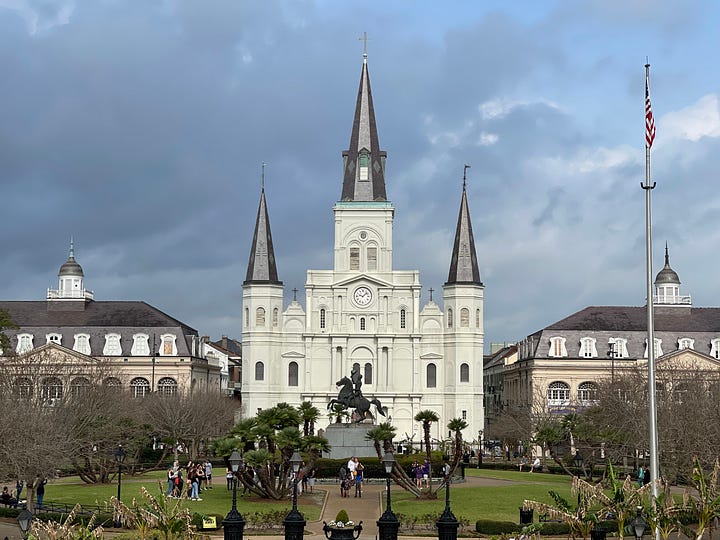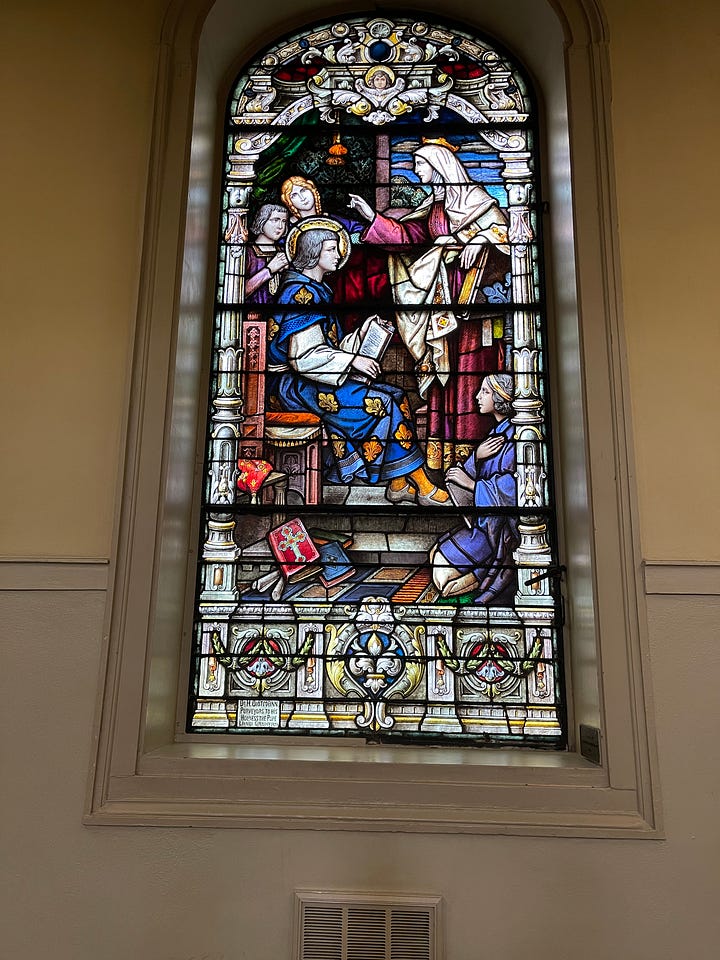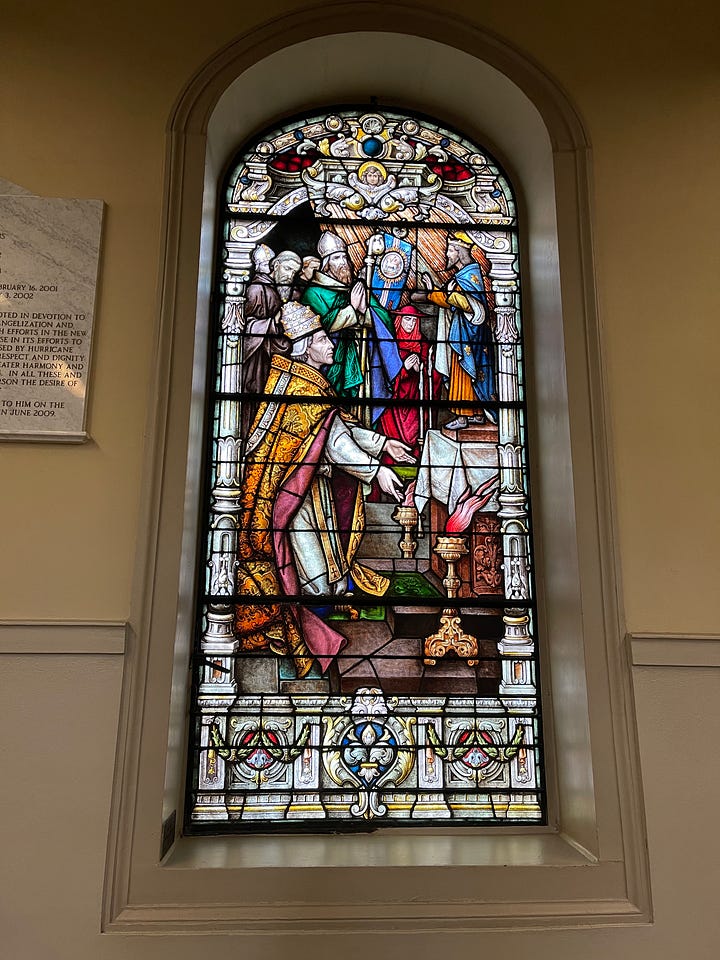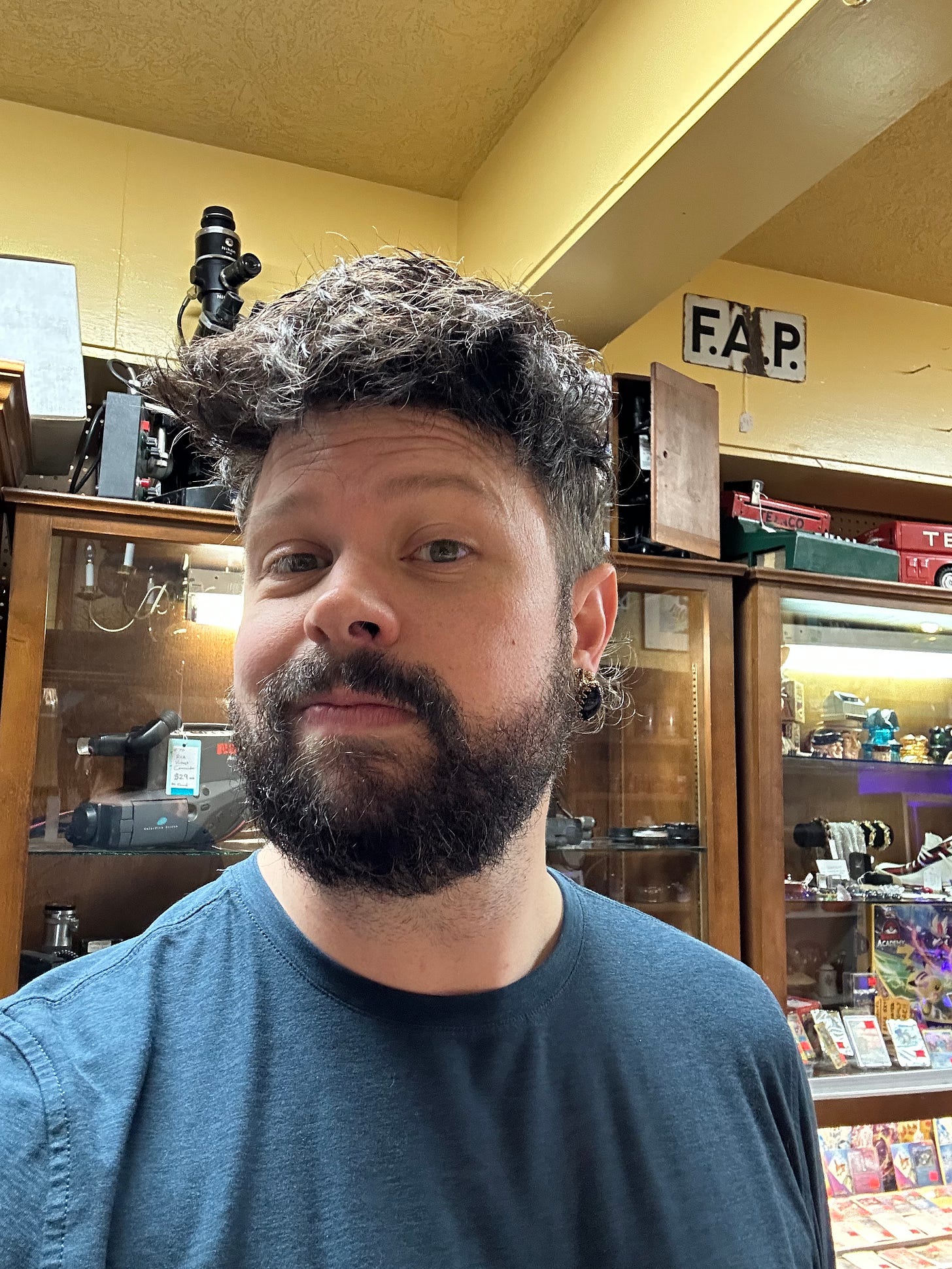The Grace of Empty Spaces
Why emptiness might be the most valuable thing you're missing

Last night, I stood in the doorway of my nearly empty bedroom. The mattress was gone, revealing dented carpet where my bed had rested during the past year. The indent of furniture feet marked where my nightstand once stood. Four tiny holes in the wall whispered the ghost of a forgotten painting.
I expected to feel loss. Instead, I found myself transfixed by how the moonlight cast new shadows in corners I'd never noticed before. How sound traveled differently. How the room seemed to exhale after a year of holding its breath.
When did I last encounter a truly empty space?
Not just physically empty, but emotionally, mentally, spiritually unoccupied—a moment not already claimed, categorized, or pre-assigned meaning?
The Courage to Leave Things Unfilled
We are taught early and often that emptiness signifies incompletion.
That gaps need bridging.
That silence means something's wrong.
That blank spaces require filling.
Our hands reach instinctively for our phones during elevator rides lasting less than thirty seconds. We plug earbuds in to walk three blocks to the corner store. We apologize for "dead air" in conversations as if silence were some kind of social mortality.
Perhaps what we fear isn't emptiness itself, but what it reveals about us.
When the constant noise fades, when the perpetual motion stills, when we stand face-to-face with unfilled space—what remains? Who are we in that echoing absence? What truths have we been drowning out with our carefully curated soundtrack of busyness?
The answers might be more beautiful than we imagine. Or more terrifying. Or both, simultaneously.
The Hidden Life of Empty Spaces
I once visited a cathedral in the early morning before tourists arrived. There were no footsteps, whispers, or camera shutters—just a vast, cavernous space designed specifically to hold absence—to cradle silence like something precious.




The emptiness wasn't inactive. It moved. It breathed. It held centuries of prayers and tears and wonder in its vault. The absence wasn't an accident or oversight to correct—it was the entire point.
I wonder if we've forgotten how to create such spaces in our lives. How to build internal cathedrals specifically designed to house nothing at all.
Think of the space between your heartbeats.
Not the rhythmic thump that doctors measure, but the necessary pause between. That tiny, sacred interval where nothing happens is what makes the next beat possible. Without it, there is no rhythm—only cardiac arrest.
Our lives need these intervals too.
Not as temporary placeholders until something better comes along. Not as reluctant concessions to human limitation. But as essential architecture of a life with depth and resonance.
Reclaiming the Art of Emptiness
I once visited a friend after she lost her partner. In their living room, his reading chair remained untouched, a book still splayed open on the armrest, reading glasses folded nearby.
"People keep suggesting I 'clear it away,'" she told me, voice steady but eyes distant. "But this emptiness holds something I'm not ready to lose yet. It's not just absence—it's a different kind of presence."
That moment stayed with me. She understood something essential about emptiness. That it can be intentional, meaningful, even necessary. That some spaces speak most eloquently when left unfilled.
How might we reclaim this forgotten art?
Perhaps it begins with small acts of resistance.
When someone asks, "What are your plans this weekend?" having the courage to say, "I'm keeping it open."
When a creative project feels stuck, resisting the urge to force progression, instead allowing fallow time that appears unproductive on the surface while underground currents continue their essential work.
When grief or transition empties a corner of our lives, we should honor that vacancy rather than rush to refill it.
We should recognize that some spaces need to remain empty long enough to teach us what they've come to teach.
The Hidden Abundance of Less
My new house has a different layout than my current one. Different angles of light. Different rooms. Different possibilities. Less storage (AHHHH).
Professional organizers and efficiency experts would have me believe this is a problem that can be solved with clever storage solutions, multi-purpose furniture, systems, and strategies to maximize every cubic inch.
But what if I approached it differently? Instead of finding ways to fit all my belongings into a smaller space, I allowed this physical limitation to guide me toward what matters most?
What if emptiness isn't just absence, but invitation? Not just loss, but liberation?
In these empty rooms, these unfilled hours, these incomplete conversations, these uncluttered corners of our minds, we discover something rare in our maximized world—space to become more fully ourselves.
In the ecology of a human life, emptiness is not a wasteland. It is essential habitat for meaning to take root. For wonder to blossom unexpectedly. For the self to remember its own contours.
So I stand in my half-empty home and try to learn its lesson before I fully finish cleaning and hand over the keys. I try to remember that no matter how full the new house becomes, some spaces deserve to remain empty—not as planning failures, but as deliberate sanctuaries of possibility.
Because in a world obsessed with more, the most revolutionary act might be leaving room for less.
And in the emptiness we protect today might grow the meaning we're seeking tomorrow.
About Alex

I’m equal parts old soul and curious wanderer, a farmer boy at heart, and a writer whenever I can corral my ADHD. Ultimately, I write for those who crave rest in a world that never pauses.
As a political psychologist, yoga therapist, and integrative coach—anchored by both research and lived experience—I delve into questions of identity, connection, and wholeness, which are the foundation of my Substack publication, Life as I See It.
If you haven’t yet joined me, I invite you to subscribe for free:







Thank you. This came at exactly the time I too am aware of my own fear of emptiness, and how I've been filling it with this - the internet. Last year I stepped away from it for several months. It wasn't easy, but into that 'emptiness' came the idea of a new book. In the creative arena, I believe that the completion - the ending - of a project actively needs the acceptance/experience of the emptiness. That the emptiness is a vital part of the creative cycle. Like ground left fallow can recover and become rich again. But oh, it's hard... I wish you all happiness in your new house, and that it will in time become a true home.
Alex, this is such a well crafted essay. So much can be said about emptiness, and you gave us excellent examples of what that might look like in a spiritual, physical, and emotional sense.
I think about emptiness often, for a number of reasons. But one of them is that I don't like any kind of clutter. I can't breathe deeply or ease into anything - or be fully present - when I'm constantly bombarded with stuff or things to do.
And that's tough, given the fact that I'm raising five kids. My husband Ben does a lot and we share our caregiving role, but still. It's a lot, even for two people.
Silence is a sort of embrace for me. I feel open and ready to receive whatever comes my way when I am given the space that silence offers. Seldom do I feel restless in solitude like many people (sadly) seem to when they reach for their devices. In solitude I feel satisfied, content. I am coming home to myself and that means I am more energized to be receptive to the ways my particular gifts may be called into being today.